Featured
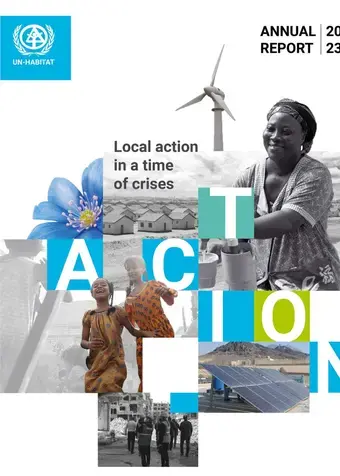
Annual Report
Annual Report 2023: Local action in a time of crises
In a world grappling with crises, cities emerge as pivotal agents of change. UN-Habitat’s 2023 report underscores the urgent need for urban transformation to tackle issues ranging from climate change to inequality,… Read more

Global Report
Rescuing SDG 11 for a resilient urban planet
The current report shows that the world is off track in achieving SDG 11. Rescuing SDG 11 is urgent for the sake of present and future generations. The report points to the immense opportunities that exist and the… Read more
- 2153 results
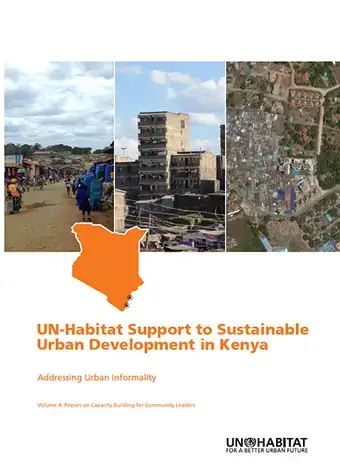
Technical Report
UN-Habitat Support to Sustainable Urban Development in Kenya - Volume 4
2016
This is the fourth in the series of reports titled UN-Habitat Support to Sustainable Urban Development in Kenya. The reports addresses the topic of urban informality and reports on a capacity building session conducted by UN-Habitat for informal settlement leaders, which was also attended by county technical officers, members of county assemblies, national government officers, development partners, and civil society organizations.
Read now
Learn more
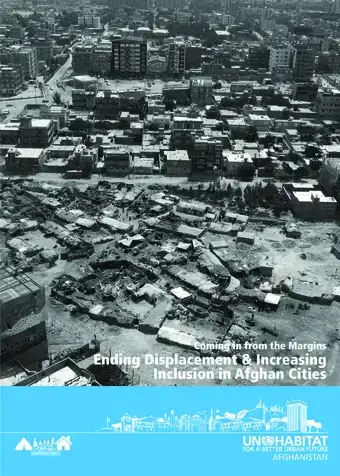
Technical Report
Coming in from the Margins: Ending Displacement & Increasing Inclusion in Afghan Cities
2016
Since 2002, over 5.6 million Afghans have returned from neighbouring countries and as many as 40% of them have not been able to reintegrate in their original locations. The total number of recorded IDPs in Afghanistan is more than 1.2 million. These returnees together with IDPs, rural-urban migrants and high natural population growth have resulted in an unprecedented expansion of Afghan cities. During the past decade, returnees, IDPs and low-income migrants face major obstacles to accessing…
Read now
Learn more
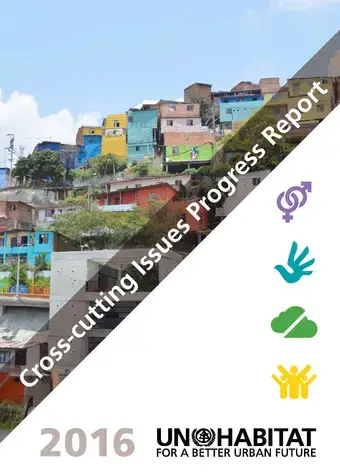
Technical Report
Cross-Cutting Issues Progress Report 2016
2016
"The Cross-cutting Progress Report 2016 covers UN-Habitat’s activities and achievements, during the course of 2016, in the way of its four cross-cutting issues: climate change, gender, human rights, and youth. The Report presents an overview of the mandate and structure of each of the cross-cutting issues, as well as presenting case studies of the Agency’s work on the ground relating to these issues.
The four cross-cutting issues were formalised in 2013 and have since then…
Read now
Learn more
The four cross-cutting issues were formalised in 2013 and have since then…
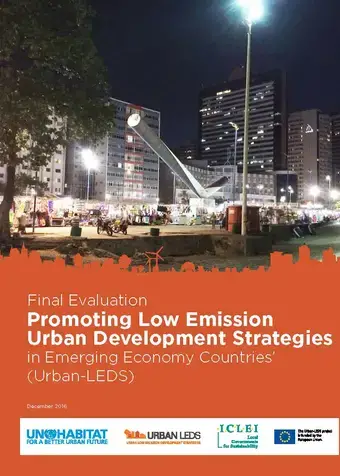
Evaluation
Final Evaluation: Promoting low emission urban development strategies in emerging economy countries’ (Urban-LEDS), December 2016
2016
This Final Evaluation of the Urban-LEDS Project was carried out during the period May – September 2016. The Objective of the Project is “to enhance the transition [of cities] to low emission urban development in emerging economy countries.” The Project began in March 2012 and ended in March 2016 (48 months). The total Project budget provided by the European Commission was €6.7 million Euros.
Read now
Learn more
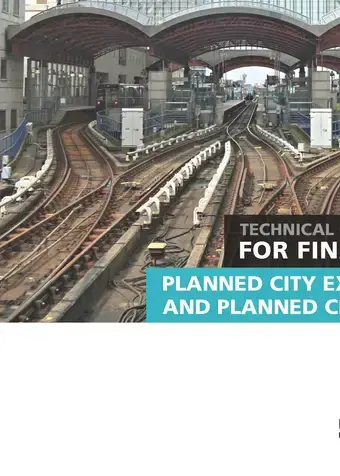
Toolkits, Manuals and Guides
Technical guidebook for financing planned city extension and planned city infill
2016
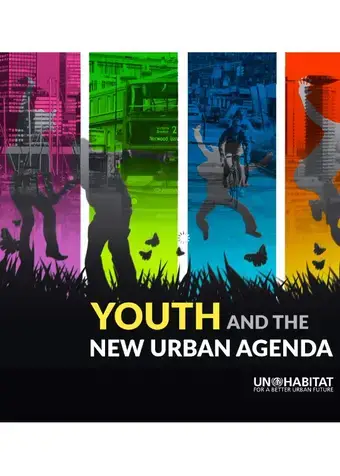
Technical Report
Youth and the New Urban Agenda
2016
This paper intends to strengthen awareness and collaboration between UN-Habitat and its partners with the goal of promoting the relevance of issues pertaining to youth living in cities; present and future.
Read now
Learn more
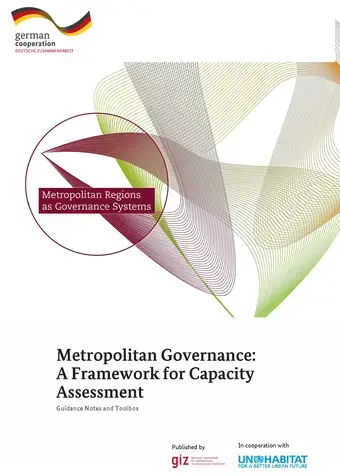
Toolkits, Manuals and Guides
Metropolitan Governance: A Framework for Capacity Assessment. Guidance Notes and Toolbox
2016
UN-Habitat and GIZ have developed the Metropolitan Capacity Assessment Methodology (MetroCAM) as a joint contribution to implement urban sustainable development agendas and bring them to the metropolitan scale. It complements the Unpacking Metropolitan Governance series.
With this modular toolbox, urban stakeholders are able to assess existing capacity in a metropolitan setting, future needs, and potential trigger points and finally identify options for change. By tackling a particular…
Learn more
With this modular toolbox, urban stakeholders are able to assess existing capacity in a metropolitan setting, future needs, and potential trigger points and finally identify options for change. By tackling a particular…
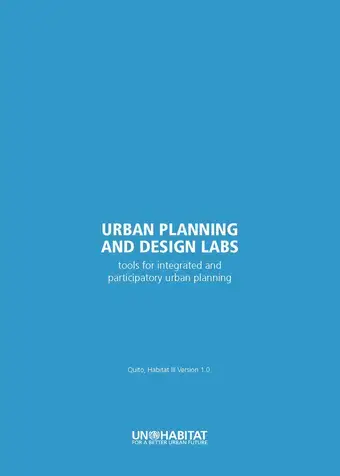
Toolkits, Manuals and Guides
Urban Planning and Design Lab's: Tools for Integrated and Participatory Urban Planning
2016
This publication aims to present the Lab´s approach towards planning and design, management and implementation, as well as to introduce the trajectory of the UN-Habitat’s Lab through its working years of experience.
Read now
Learn more
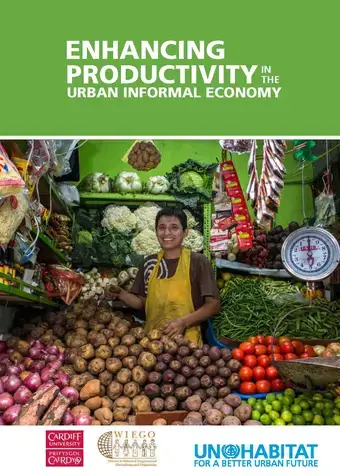
Technical Report
Enhancing productivity in the urban informal economy
2016
The informal economy is the lifeblood of many cities today. It provides jobs for many, in some cities the majority of urban workers, provides flexible services to many urban residents, and makes significant contributions to urban economies.
The informal economy demonstrates vibrancy, flexibility and entrepreneurship, and supports local supply chains and global exchange. However, diversity makes the informal economy hard to capture in conventional urban policy processes.
…
Read now
Learn more
The informal economy demonstrates vibrancy, flexibility and entrepreneurship, and supports local supply chains and global exchange. However, diversity makes the informal economy hard to capture in conventional urban policy processes.
…
Press Release
Foreign investment could help lift millions of Africans out of poverty
Posted on June 21st, 2018
Read now
Press Release
UN-Habitat and Think City sign MOU aimed at bettering cities in Malaysia and across the globe
Posted on May 8th, 2018
Read now
Press Release
In Iraq, years of violence and conflict leave 4 million children in need
Posted on February 13th, 2018
Read now
Press Release
Ministerial meeting for Arab States to be held in Morocco
Posted on December 13th, 2017
Read now
Press Release
Regional Partners Forum gathers 80 representatives from 20 countries to drive implementation of New Urban Agenda and SDGs in Asia Pacific
Posted on November 29th, 2017
Read now
Statement and Speech
Urbanization For Prosperity. Policy Statement 25th Session of the Governing Council
Posted on August 25th, 2015
Read now